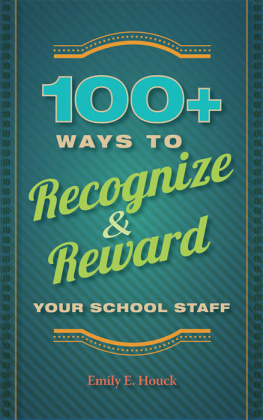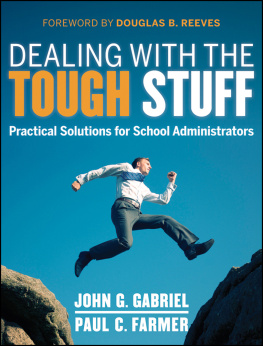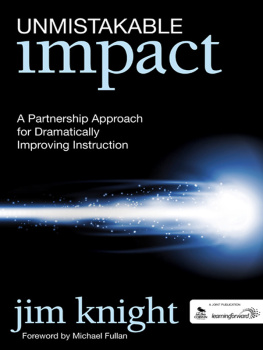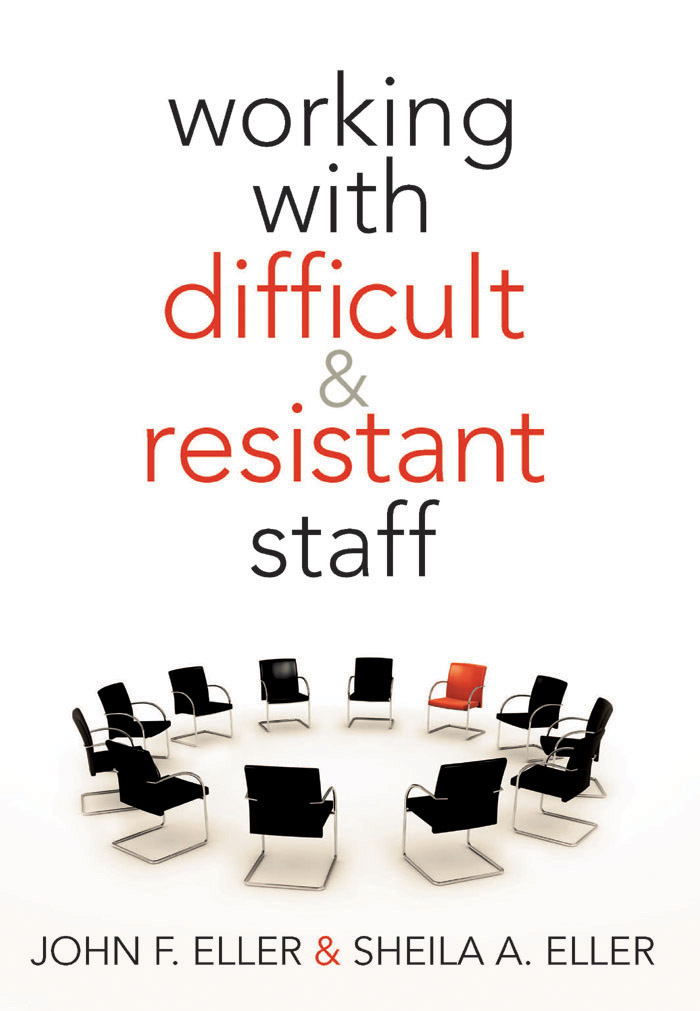working
with
difficult
&
resistant
staff
JOHN F. ELLER & SHEILA A. ELLER

Copyright 2011 by Solution Tree Press
All rights reserved, including the right of reproduction of this book in whole or in part in any form.
555 North Morton Street
Bloomington, IN 47404
800.733.6786 (toll free) / 812.336.7700
FAX: 812.336.7790
email: info@solution-tree.com
solution-tree.com
Visit go.solution-tree.com/leadership to download reproducible versions of selected figures in this book.
Printed in the United States of America
15 14 13 12 11 1 2 3 4 5

Library of Congress Cataloging-in-Publication Data
Eller, John Frank, III, 1957- , author.
Working with difficult and resistant staff / John F. Eller, Sheila A. Eller.
p. cm
ISBN 978-1-935542-07-0 (perfect bound) -- ISBN 978-1-935542-08-7 (library edition)
1. School personnel management. 2. Problem employees. 3. School improvement programs. I. Eller, Sheila A., author. II. Title.
LB2831.5.E395 2011
371.201--dc22
2010045881
Solution Tree
Jeffrey C. Jones, CEO & President
Solution Tree Press
President: Douglas M. Rife
Publisher: Robert D. Clouse
Vice President of Production: Gretchen Knapp
Managing Production Editor: Caroline Wise
Senior Production Editor: Ris Koben
Proofreader: Elisabeth Abrams
Text Designer: Orlando Angel
Compositor: Amy Shock
Cover Designer: Jenn Taylor
Acknowledgments
Solution Tree Press would like to thank the following reviewers:
Sonja Alexander
Director of Professional Learning
DeKalb County Schools
Decatur, Georgia
Nikki Cannon
Principal
Harbour Pointe Middle School
Mukilteo, Washington
Judith Martin-Tafoya
Principal
Truman Middle School
Albuquerque, New Mexico
Jacqueline Newton
Principal
Iroquois Ridge High School
Oakville, Ontario
Matilda Orozco
Principal
Lantrip Elementary School
Houston, Texas
Visit go.solution-tree.com/leadership to download reproducible versions of selected figures in this book.
Table of Contents
About the Authors
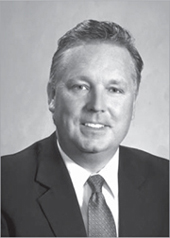
John F. Eller has had a variety of experiences working with adults over the years he has been in education. He has served in a leadership role for a new doctoral program at St. Cloud State University and worked with educational leaders at Virginia Tech University. He has held positions as director of Minnesota ASCD; director of a principals training center; assistant superintendent for curriculum, learning, and staff development; and principal in a variety of settings. In addition to training and supporting facilitators, John specializes in dealing with difficult people; building professional learning communities; employee evaluation; conferencing skills; coaching skills; strategic planning strategies; school improvement planning and implementation; differentiated instruction; leadership for differentiation; employee recruitment, selection, and induction; supervisory skills; and effective teaching strategies.
John has a PhD in Educational Leadership and Policy Studies from Loyola University Chicago and an MS in Educational Leadership from the University of Nebraska at Omaha. He is the author of Effective Group Facilitation in Education: How to Energize Meetings and Manage Difficult Groups and coauthor of So Now Youre the Superintendent! Creative Strategies to Transform School Culture, Working With and Evaluating Difficult School Employees, and the best-selling Energizing Staff Meetings.

Sheila A. Eller has worked in a multitude of educational settings during her career. She is currently an elementary school principal in the Mounds View Public Schools in Minnesota and has served as a principal in the Fairfax County Public Schools and in other schools in Minnesota and Illinois, a university professor, a special education teacher, a Title I math teacher, and a self-contained classroom teacher in grades 14.
In addition to her work in schools, Sheila has served education on a regional and national basis. She has been a member of the executive board of Minnesota ASCD and has been a regional president of the Minnesota Association of Elementary School Principals. She has completed advanced coursework in educational administration and supervision at St. Cloud State University and holds a masters degree from Creighton University, and a bachelors degree from Iowa State University.
Sheila is a regular presenter at the ASCD national conventions, sharing her expertise on the topic of effective staff meetings and multiage instruction. While she worked at National-Louis University in Evanston, Illinois, she helped develop a classroom mathematics series that was adopted by several districts in the region. A video that accompanied this series featured her instructional techniques. In her work with educators, she specializes in energized staff meetings, school improvement initiatives, multiage teaching strategies, employee supervision, and teaching and learning in the content areas. Sheila is coauthor of the best-selling Energizing Staff Meetings and of Creative Strategies to Transform School Culture and Working With and Evaluating Difficult School Employees.
Preface
When we first started leading schools, change was somewhat optional. In todays high-stakes/high-accountability environment, school improvement and change are no longer optional. In past educational environments, we sometimes had the luxury of ignoring people who were resistant to change. Many leaders thought, If we just give people more time, they will come along when they are ready. This attitude kept conflict to a minimum but also stalled many good change efforts. With increased school accountability, we can no longer ignore the behaviors of difficult or resistant people in our schools.
Many principals have told us that difficult or resistant people take up untold amounts of their timeboth directly, in that they require supervision, and indirectly, in that principals must counter their influence on other employees in the school. The amount of energy principals put out trying to effectively manage difficult or resistant employees has not been tracked but would be mind-boggling if we could find a way to assess it.
Over the years, we ourselves have had the pleasure of working with many difficult and resistant people as we have led schools through improvement and change efforts. Many of these people have given us not only headaches and sleepless nights but also opportunities to learn and apply effective strategies to minimize their difficult and resistant behaviors. Even though we have not won every battle, we have been able to address their difficult behaviors head-on and actually turn some of them around. In all cases, by addressing the behaviors of difficult and resistant people, we have sent a message to the rest of our staff members that a few people cannot keep the rest of the group from moving forward.





